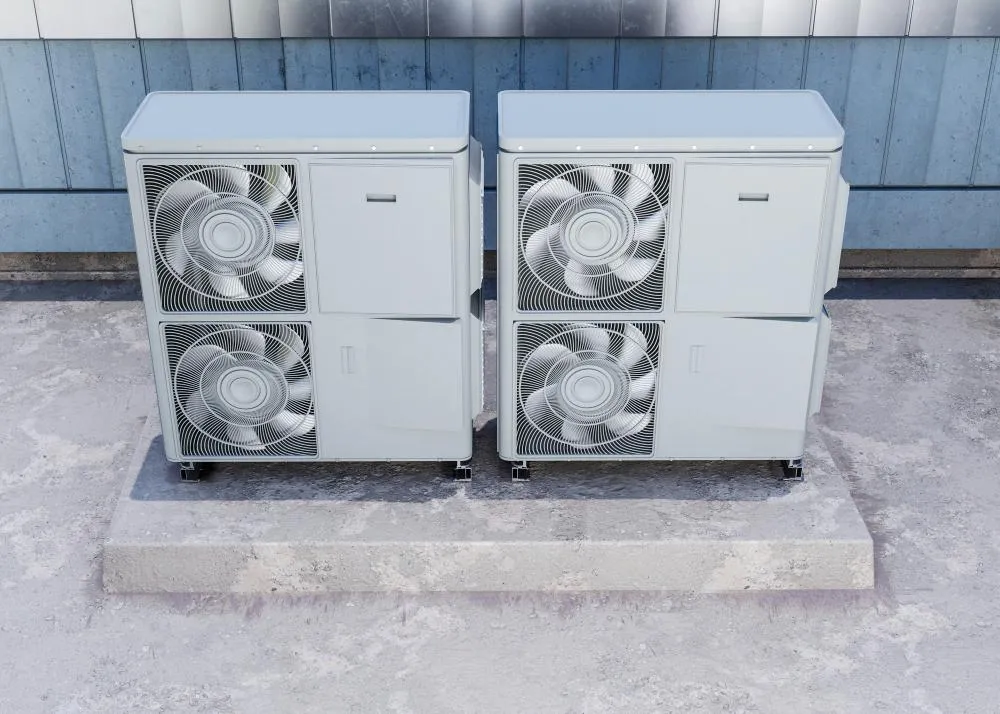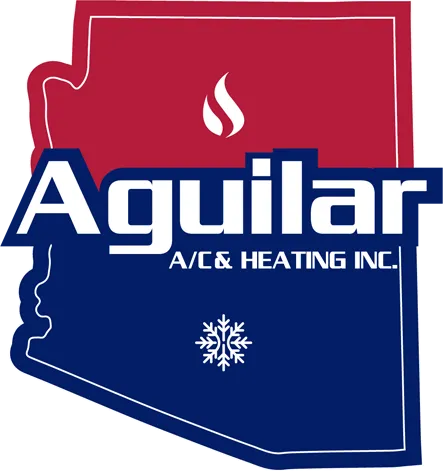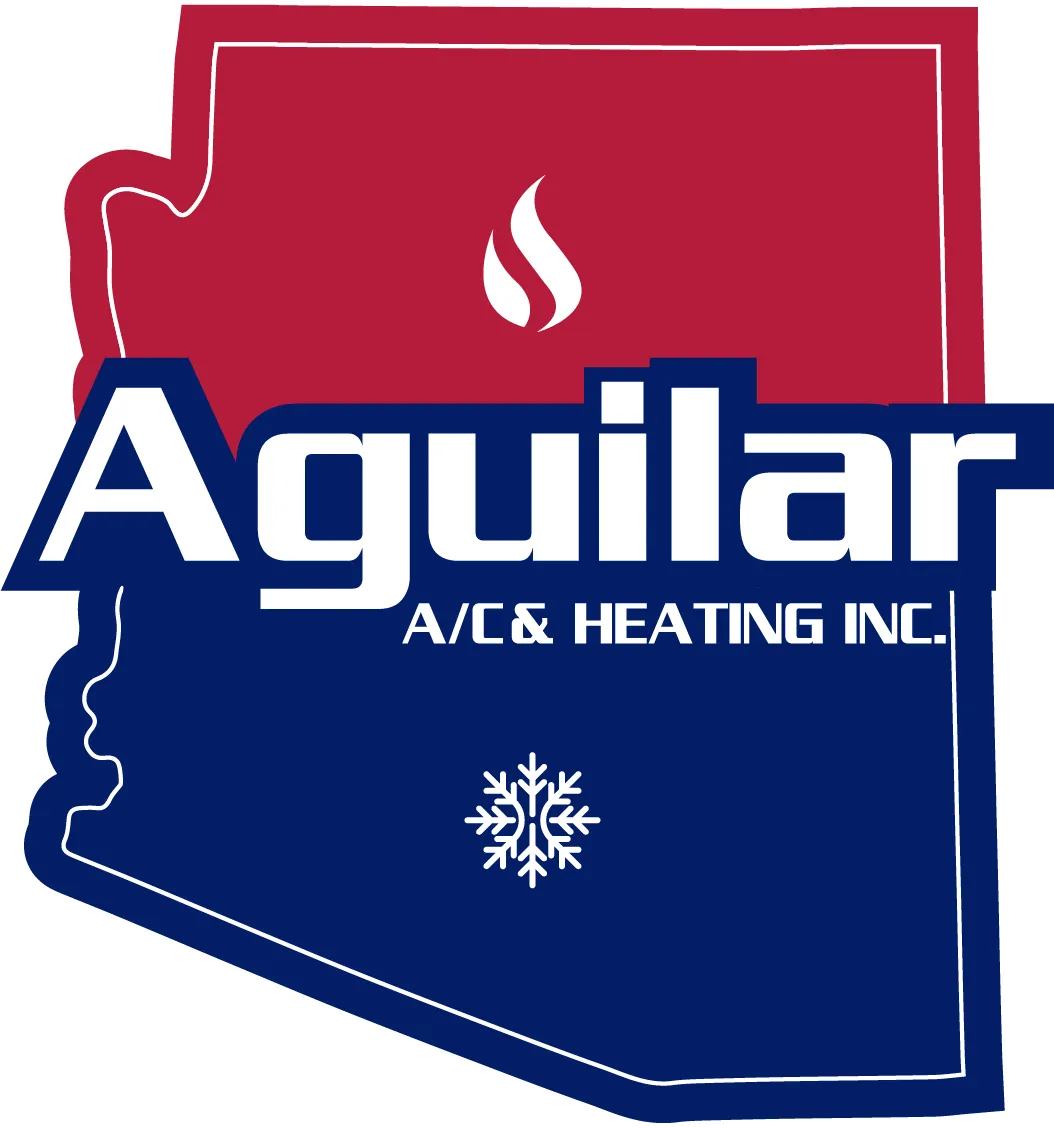Aguilar A/C & Heating
Blog

When a Heat Pump Is a Better Choice Than a Furnace in Phoenix
If you live in Phoenix, you know that “winter” looks very different here than in most of the country. Instead of snowstorms and freezing nights, we deal with mild temperatures and short bursts of chilly mornings. Because of that, many homeowners wonder: Do I really need a furnace, or is there a better way to heat my home?
For many Phoenix residents, a heat pump is not just a suitable option — it’s the smarter one. It provides efficient heating during cooler months and doubles as your air conditioner in the summer. In this guide, we’ll explore when a heat pump outperforms a furnace in the desert climate, what factors to consider, and how local HVAC professionals can help you make the right choice.
Understanding the Difference: Heat Pump vs. Furnace
Before comparing performance, it’s helpful to understand how each system works.
Heat Pump:
A heat pump transfers heat rather than generating it. In winter, it pulls warmth from the outdoor air and moves it indoors. In summer, it reverses the process, removing heat from inside your home to cool it.
Furnace:
A furnace creates heat by burning fuel (typically natural gas) or using electric resistance coils. It only heats — cooling requires a separate air conditioning unit.
In Phoenix’s mild winters, heat pumps rarely struggle to find heat in the air. That makes them highly efficient and cost-effective for year-round comfort.
When a Heat Pump Is the Better Choice
Phoenix’s unique climate gives heat pumps an advantage over furnaces in several key areas.
1. Mild Winters = Perfect Conditions for Heat Pumps
Heat pumps are most efficient when outdoor temperatures stay above freezing — exactly the case in Phoenix, where winter lows average around 45°F. Unlike in colder regions, heat pumps here rarely need backup heating sources, making them ideal for consistent, affordable warmth.
In short: The milder the climate, the better a heat pump performs — and Phoenix couldn’t be better suited.
2. Year-Round Comfort from One System
Instead of maintaining both a furnace and an air conditioner, a heat pump handles both heating and cooling. This dual function simplifies maintenance and saves on installation costs.
Benefits:
One system for all seasons
Reduced maintenance appointments
Lower upfront installation cost compared to separate systems
3. Energy Efficiency and Lower Utility Bills
Heat pumps move heat rather than create it, which can make them up to three times more energy efficient than gas furnaces. That means lower monthly bills and reduced carbon footprint — something especially noticeable in Phoenix, where cooling costs dominate most of the year.
Example: A high-efficiency heat pump can use up to 50% less electricity for heating than a standard electric furnace or baseboard heater.
4. Environmentally Friendly Operation
Because they don’t burn fossil fuels, electric heat pumps produce fewer greenhouse gas emissions. Phoenix homeowners who prioritize sustainability — or who plan to install solar panels — can maximize efficiency with an all-electric HVAC setup.
Bonus: Heat pumps pair well with rooftop solar systems, allowing you to offset much of your heating and cooling costs through clean energy.
5. Improved Indoor Air Quality
Gas furnaces produce combustion gases that must be safely vented outdoors. With an electric heat pump, there’s no combustion — meaning no carbon monoxide risk, fewer pollutants, and cleaner indoor air.
This makes heat pumps especially appealing for families with allergies, asthma, or respiratory sensitivities.
When a Furnace Might Still Make Sense
While heat pumps are an excellent fit for most Phoenix homes, furnaces can still be useful in specific cases:
Homes with existing gas lines: If you already have a natural gas furnace in good condition, replacement may not be immediately necessary.
Occasional cold snaps: In rare cases, temperatures may dip low enough that an electric heat pump’s efficiency drops slightly. Some homeowners prefer a dual-fuel system — combining a gas furnace with a heat pump — for maximum flexibility.
Preference for faster heating: Furnaces heat air more quickly than heat pumps, which can be desirable if you like instant warmth during cooler mornings.
The right system ultimately depends on your home’s insulation, budget, and long-term energy goals.
Decision Guide: Choosing Between a Heat Pump and Furnace
If you’re weighing your options, here’s how to decide which system suits your home best.
Step 1: Evaluate your climate needs.
Phoenix’s climate is ideal for heat pumps. Unless your home has unique heating demands, they’re usually more cost-effective long term.
Step 2: Consider your energy source.
Homes without natural gas lines are perfect candidates for all-electric heat pumps. If you already have gas hookups, dual-fuel systems can provide backup heat on rare cold days.
Step 3: Review installation and maintenance costs.
Heat pumps have higher upfront costs than basic furnaces, but they replace both your heater and AC — saving money overall.
Step 4: Think about energy efficiency and comfort.
If reducing utility bills and carbon emissions are priorities, a high-efficiency heat pump is the way to go.
Step 5: Consult a professional HVAC technician.
A certified technician can perform a load calculation, assess your ductwork, and recommend the best system for your specific home and budget.
FAQs
Do heat pumps work well in Phoenix’s summer heat?
Yes. Modern heat pumps are built for high-temperature performance and function efficiently even when outdoor temperatures exceed 100°F.Will a heat pump keep my home warm enough in winter?
Absolutely. Phoenix’s winter temperatures are mild, so a heat pump provides more than enough warmth without needing supplemental heat.Are heat pumps noisy?
No. Most newer models are quieter than traditional outdoor AC units, often running at a soft hum level.How long does a heat pump last?
With proper maintenance, a quality heat pump can last 12–15 years or longer — about the same as most air conditioners.Can I replace my furnace and AC with one heat pump system?
Yes, that’s one of the main benefits. A properly sized heat pump can completely replace both systems, offering heating and cooling from one efficient unit.
Conclusion
For most Phoenix homeowners, a heat pump offers the perfect blend of efficiency, comfort, and simplicity. It’s designed for the desert climate — cooling your home in summer and providing gentle, affordable heat in winter.
If you’re considering replacing your furnace or upgrading to a more efficient system, Aguilar A/C & Heating can help you compare options, perform professional installation, and ensure your new system delivers maximum comfort year-round.
Our Services
Helpful Links
Contact Information
Phoenix, AZ 85042
Business Hours
Mon - Fri: 8:00 am - 4:30 pm
Sat & Sun: Closed
© 2025 All Rights Reserved | Aguilar A/C & Heating

